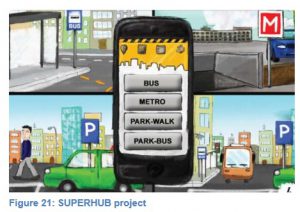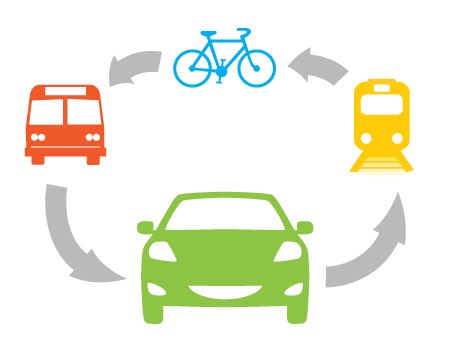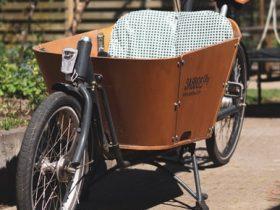About the SOLUTIONS project
The overall mission of SOLUTIONS is to support the uptake of innovative sustainable urban mobility solutions in Europe and other regions in the world, in particular in Asia, Latin America and the Mediterranean. Transport is a key enabler of economic activity and social connectivity. While providing essential services to society, transport is also an important part of the economy and it is at the core of a number of major sustainability challenges, such as climate change, air quality, safety, energy, security and efficiency in the use of resources. There will be a variety of aspects to be considered within the knowledge sharing and mutual learning elements of the SOLUTIONS project. While sharing experiences on sustainable urban mobility solutions the key focus of the project will be to identify innovative measures in the partner countries and test their applicability to European cities around the world. SOLUTIONS will facilitate a North-South-South-North dialogue and exchange, contributing to a high degree of integration of knowledge and resource sharing. The project is organised into five main parts to realise the take-up of sustainable mobility solutions. An initial transferability assessment (WP1) is followed by a knowledge-sharing and capacity building plan (WP2). Both form the basis for transfer, take-up and future cooperation in Asia and Latin America (WP3) as well as transfer and future research cooperation in the Mediterranean (WP4). The results will be widely promoted through global dialogue, dissemination and outreach (WP5). The strategic impact of the project will be to:
- Foster the deployment of innovative transport solutions in Europe and across the world to reach European and global agreements on sustainable urban mobility, energy efficiency and fight against climate change.
- Support the structured transfer of innovative transport solutions from the European industry and service sector to other regions in the world.
- Contribute to better global dialogue amongst policy-makers and practitioners in urban transport from Europe and other industrialised and emerging countries.
- Develop research cooperation with Mediterranean partner countries in the field of urban transport.
Transferability approach
Cities around the world have a need to establish sustainable transport systems, which provide efficient and safe mobility for their citizens with minimum environmental impacts. With limited opportunity to build new infrastructure, many cities need to increase the efficiency and capacity of their transport systems and are turning to innovative and technically-advanced systems to contribute to this objective. SOLUTIONS will build on a range of EU and international-cooperation projects that have assessed innovation and good practice in transport. It will identify innovative and green urban transport and mobility solutions from around the world and select a number of solutions that may be suitable for transfer to cities within the SOLUTIONS regions of Asia, Latin America and Europe. Obviously, the take-up of urban mobility and transport solutions between global regions is particularly challenging as socio-economic conditions and policy frameworks differ substantially across the regions. Within Europe, a number of projects have successfully demonstrated take-up between cities, which confirms the value of collaborative learning and exchange of experiences within different cultures and planning practices (e.g. CIVITAS, TIDE, Niches).
Cities, regions and countries often share similar challenges and there are always more or less progressive cities. Whilst there are advantages to sharing examples, learning and best practices, it is more fruitful to follow a robust methodology to help achieve widespread implementation and harmonisation of successful policies, measures and technologies.
Transferability is a process of assessing the potential of a successful implementation of a measure in a new location. The process involves analyzing various factors, which have the potential to influence the implementation and learning from the experiences in the pioneer cities. The use of a transferability methodology provides an opportunity to learn from the previous experience of implementation to better exploit opportunities and avoid mistakes.
A successful implementation of a measure in one city does not automatically mean that it is suitable for transfer to other cities; the right conditions are needed to make it a reality. The replication of success in a different urban context is challenging as the cities can differ in many aspects of transport and traffic conditions (demand, supply, infrastructure, traffic control and management etc.), geographical, environmental, demographic, socio-economic and cultural backgrounds as well as institutional and legal frameworks (CIVITAS, 2012). The transferability methodology developed for this project will help to identify those factors, which are key to the measure’s success and must be addressed in a new location. It also helps to identify any factors, which may create barriers, so that they can either be overcome or the decision can be made not to introduce the measure.

Thematic clusters in SOLUTIONS
SOLUTIONS has identified a number of potential planning and policy measures and grouped them into six thematic clusters. The topic areas are derived from the call text and encompass measures to improve the sustainability of urban mobility, focusing on solutions that can be directly implemented by local authorities. The thematic depth and focus takes into account the different levels of maturity of sustainable mobility policy in the partner regions and the ability to adopt solutions. The six thematic clusters are:
- Cluster 1: public transport
- Cluster 2: transport infrastructure
- Cluster 3: city logistics
- Cluster 4: integrated planning and Sustainable Urban Mobility Plans
- Cluster 5: network and mobility management
- Cluster 6: clean vehicles

Car sharing solutions
Read the full report at:
http://www.urban-mobility-solutions.eu/fileadmin/editor-content/Newsletter_photos/D1_1_working_paper_innovative_solutions_1.6_small.pdf



















